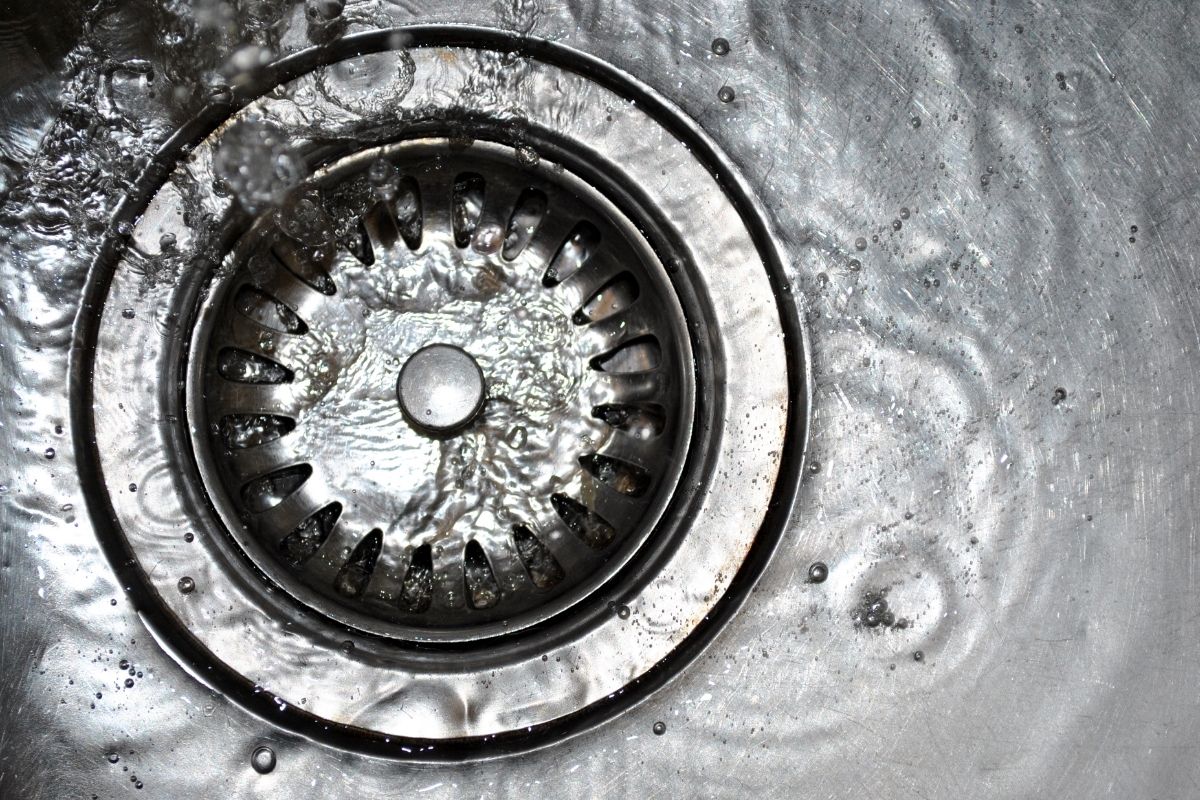

Articles
Why Does My Sink Gurgle
Modified: February 24, 2024
Discover articles that explain why your sink gurgles and find solutions to fix this common plumbing issue. Explore expert advice and tips on preventing sink gurgling.
(Many of the links in this article redirect to a specific reviewed product. Your purchase of these products through affiliate links helps to generate commission for Storables.com, at no extra cost. Learn more)
Introduction
Have you ever noticed a strange gurgling sound coming from your sink? It can be quite worrisome, but fear not, you’re not alone. Sink gurgling is a common plumbing issue that many homeowners face. Understanding why your sink gurgles and knowing how to fix it can save you from potential headaches and costly repairs.
When your sink gurgles, it’s usually an indication of an underlying problem in your plumbing system. The gurgling sound occurs when air gets trapped in the water-filled pipes, causing a disruption in the flow of water. This disruption then results in the audible gurgling noise that can be frustrating to deal with.
There are several common causes of sink gurgling, ranging from simple clogs to more severe plumbing issues. These causes can include a clogged drainpipe, ventilation issues, blocked plumbing vents, problems with the P-trap, sewer line issues, or even the water hammer effect. Understanding these causes is essential in troubleshooting and finding the right solution for your gurgling sink.
In this article, we’ll explore the different causes of sink gurgling and provide step-by-step solutions to fix the problem. We’ll also discuss preventive measures you can take to avoid future issues with your sink. So, let’s dive in and get to the bottom of why your sink gurgles and how to solve the problem.
Key Takeaways:
- Sink gurgling can be caused by various plumbing issues such as clogged drainpipes, ventilation problems, P-trap blockages, sewer line issues, and the water hammer effect. Preventive measures and prompt action can help eliminate sink gurgling and maintain a healthy plumbing system.
- Regular maintenance, proper waste disposal, and monitoring water pressure are essential in preventing sink gurgling. Seeking professional assistance when needed and addressing underlying plumbing issues promptly can ensure a smoothly running plumbing system.
Understanding Sink Gurgling
To effectively address the issue of sink gurgling, it’s important to understand how the plumbing system in your home works. When you use your sink, wastewater flows through the drainpipe and into the sewer or septic system. At the same time, air needs to enter the plumbing system to balance the pressure and maintain smooth water flow.
When the plumbing system is functioning correctly, air enters through plumbing vents, which are pipes that extend from the drainpipes to the roof of your house. These vents allow air to escape and prevent the formation of a vacuum in the pipes, ensuring proper water drainage.
However, if there is a blockage or restriction in the drainpipe, ventilation issues, or a malfunction in any part of the plumbing system, air may become trapped. As water flows down the drain, it pushes against the trapped air pocket, causing it to release and create the gurgling noise you hear.
It’s essential to address sink gurgling promptly, as it can be a symptom of a more significant plumbing problem. Ignoring the issue can lead to slow drains, backups, and potential water damage in your home.
Now that we have a better understanding of why sink gurgling occurs, let’s dive into some of the common causes and how to fix them.
Common Causes of Sink Gurgling
When it comes to sink gurgling, there are several common causes that you should be aware of. Identifying the specific cause in your situation can help you determine the appropriate solution. Here are some of the most frequent culprits:
-
Clogged Drainpipe
A clogged drainpipe is one of the primary reasons for sink gurgling. Over time, debris, grease, hair, and other substances can accumulate and create a blockage in the drainpipe, hindering the flow of water. As the water tries to pass through the clog, it can create air pockets and result in the gurgling sound. Clearing the clog is essential to restore proper drainage and eliminate the gurgling.
-
Ventilation Issues
Inadequate ventilation can also lead to sink gurgling. If the plumbing vents are blocked or obstructed, it restricts the flow of air into the pipes. Without proper ventilation, air becomes trapped, causing pressure imbalances that result in the gurgling sound. Cleaning or repairing the ventilation system can help alleviate the issue.
-
Read more: Why Does My Plumbing Gurgle
Clogged Plumbing Vents
Similar to ventilation issues, clogged plumbing vents can impede the airflow and contribute to sink gurgling. Debris such as leaves, bird nests, or other foreign objects may block the vents, preventing air from escaping. Clearing these obstructions and ensuring proper ventilation will help resolve the gurgling problem.
-
P-trap Problems
The P-trap, a curved pipe located beneath the sink, is designed to trap water and prevent sewer gases from entering your home. However, if the P-trap gets clogged or damaged, it can obstruct the flow of air and create gurgling noises. Cleaning or replacing the P-trap can often resolve the issue.
-
Sewer Line Issues
If you’re experiencing gurgling in multiple sinks or fixtures throughout your home, it could indicate a problem with the main sewer line. Tree root infiltration, sewer line collapse, or a blockage in the sewer line can impede proper water and air flow, resulting in sink gurgling. Professional assistance is typically required to diagnose and repair sewer line issues.
-
Water Hammer Effect
The water hammer effect occurs when water flows through the pipes and abruptly stops, causing a shockwave that creates loud banging or gurgling noises. This phenomenon can be attributed to high water pressure or improperly secured pipes. Installing water hammer arrestors or adjusting the water pressure can mitigate this issue.
Understanding these common causes of sink gurgling can help you pinpoint the source of the problem and determine the appropriate solution. In the next section, we’ll discuss how to fix a gurgling sink based on its specific cause.
Read more: Why Does My Poop Sink In The Toilet
Clogged Drainpipe
One of the most common causes of sink gurgling is a clogged drainpipe. Over time, debris, grease, hair, and other substances can accumulate and create a blockage in the drainpipe, hindering the flow of water. As the water tries to pass through the clog, it can create air pockets and result in the gurgling sound.
To fix a gurgling sink caused by a clogged drainpipe, follow these steps:
- Use a plunger: Begin by using a plunger to attempt to dislodge the clog. Place the plunger over the drain and push and pull the handle vigorously to create suction and pressure. This can help to break up the clog and restore proper water flow. Be sure to cover any overflow drains or adjacent drains to ensure efficient suction.
- Try a drain snake: If the plunger doesn’t work, you can use a drain snake or auger to remove the clog. Insert the snake into the drain and rotate the handle to break up and remove the blockage. Be cautious not to damage the pipes while using the snake.
- Use a drain cleaner: If the blockage persists, you can try using a chemical drain cleaner. Follow the instructions carefully and ensure proper ventilation while using these products. However, be aware that harsh chemicals can damage your pipes over time, so use them sparingly and as a last resort.
- Call a professional plumber: If all else fails, or if you’re uncomfortable with performing these tasks yourself, it’s advisable to call a professional plumber. They have the expertise and specialized tools to effectively clear the clog and resolve the gurgling issue.
Remember, prevention is always better than cure. To minimize the chances of experiencing a clogged drainpipe and subsequent sink gurgling, be mindful of what you put down your sink. Avoid pouring grease or oil down the drain, use a drain strainer to catch hair and debris, and regularly flush your drains with hot water to help prevent buildup.
By addressing a clogged drainpipe promptly and taking preventive measures, you can keep your sink running smoothly and avoid the annoyance of sink gurgling.
Ventilation Issues
Inadequate ventilation is another common cause of sink gurgling. The plumbing vents in your home are responsible for allowing air to enter the plumbing system, maintaining proper pressure and preventing air pockets that can lead to gurgling sounds. When there are ventilation issues, such as blocked or obstructed vents, the airflow is restricted, and gurgling can occur.
To address sink gurgling caused by ventilation issues, consider the following steps:
- Inspect the vents: Start by inspecting the plumbing vents on your roof or exterior wall. Look for any visible debris, such as leaves or bird nests, that may be blocking the vents. Use a long-handled brush or a garden hose to remove any obstructions, ensuring proper airflow.
- Check for vent pipe damage: Examine the vent pipes to ensure there are no cracks, disconnections, or damage that could impede proper ventilation. If you notice any issues, repair or replace the damaged vent pipes as necessary.
- Clean the vents regularly: To prevent future ventilation issues, make it a habit to clean the plumbing vents periodically. Use a plumbing snake or wire brush to remove any buildup or debris that can accumulate over time and obstruct the vents.
- Consider professional assistance: If you’re unsure about how to address ventilation issues or if the problem persists after performing these steps, it’s best to seek professional help. A licensed plumber can thoroughly inspect your plumbing vents and ensure that proper ventilation is restored.
It’s worth noting that improper venting not only causes sink gurgling but can also lead to other plumbing problems such as slow drainage, foul odors, or backups. Therefore, addressing ventilation issues promptly is crucial for maintaining a well-functioning plumbing system.
Additionally, to prevent future ventilation problems, avoid obstructing the plumbing vents with objects or vegetation, such as trees or shrubs. Regularly inspecting and maintaining the vents will help ensure proper airflow and minimize the likelihood of sink gurgling recurring.
By addressing ventilation issues and ensuring proper airflow, you can eliminate sink gurgling and maintain a healthy plumbing system in your home.
Clogged Plumbing Vents
Another common cause of sink gurgling is a clogged plumbing vent. Plumbing vents play a crucial role in maintaining proper airflow and pressure balance in your plumbing system. These vents, typically located on your roof or exterior wall, allow air to enter and exit the pipes, preventing air pockets from forming and causing gurgling sounds.
If the plumbing vents become clogged or blocked by debris, it can disrupt the airflow and lead to sink gurgling. To address this issue, follow these steps:
- Inspect the vents: Begin by visually inspecting the plumbing vents on your roof or exterior wall. Look for any signs of blockage, such as leaves, bird nests, or other debris. Use a ladder, if needed, to closely examine the vents.
- Clear the debris: If you notice any obstructions, use a long-handled brush or a plumbing snake to carefully remove the debris. Be cautious not to damage the vent pipes while clearing the blockage.
- Flush the vents: After removing the debris, you can flush the plumbing vents with water using a garden hose. This will help ensure that any remaining particles are cleared from the pipes.
- Consider preventive measures: To prevent future clogs, consider installing vent caps or mesh screens on the plumbing vents. These devices can help prevent debris from entering the vents and causing blockages.
- Seek professional help: If you’re unable to clear the clogged plumbing vents on your own or if the gurgling issue persists, it’s advisable to seek professional assistance. A licensed plumber can assess the situation and employ specialized tools or techniques to clear the vents and restore proper airflow.
Regular maintenance and inspection of the plumbing vents can help prevent gurgling issues and ensure that your plumbing system functions properly. Additionally, keeping nearby trees and vegetation trimmed away from the vents can help minimize the risk of debris accumulation.
By addressing clogged plumbing vents promptly, you can eliminate sink gurgling and maintain a well-ventilated plumbing system in your home.
P-trap Problems
The P-trap is a curved pipe located beneath your sink that is designed to trap water and prevent sewer gases from entering your home. However, if the P-trap becomes clogged or damaged, it can obstruct the flow of air and lead to sink gurgling.
If you suspect that the P-trap is causing the gurgling issue, here’s what you can do to address it:
- Inspect the P-trap: Start by visually inspecting the P-trap under your sink. Look for any signs of blockage, such as debris or gunk, that may be obstructing the smooth flow of water and air.
- Remove the blockage: If you spot a clog in the P-trap, use a pair of gloves and a plumbing snake or a wire coat hanger to carefully remove the blockage. Insert the snake or wire into the P-trap and wiggle it back and forth to dislodge the debris. Be cautious not to damage the pipes.
- Clean the P-trap: If the blockage is stubborn or if there is a buildup of residue in the P-trap, you may need to remove the trap and clean it thoroughly. Place a bucket beneath the trap to catch any water, then use a brush and mild detergent to scrub away any debris or grime. Rinse the trap with water before reattaching it to the pipes.
- Check for damage: Inspect the P-trap for any cracks, leaks, or other damage. If you notice any issues, it’s recommended to replace the damaged P-trap with a new one to ensure proper functioning.
- Seek professional assistance: If you’re unable to resolve the P-trap problem on your own or if the gurgling persists, it’s advisable to contact a professional plumber. They can diagnose the issue and provide expert guidance and repairs if needed.
Preventing future P-trap problems can be as simple as being mindful of what goes down your sink. Avoid pouring grease, oil, or large food particles into the drain, as these can contribute to clogs. Regularly flushing the drain with hot water can also help remove any buildup and keep the P-trap functioning effectively.
By addressing P-trap problems promptly and taking preventive measures, you can eliminate sink gurgling and ensure the proper functioning of your plumbing system.
Read more: Why Does My Sink Water Smell
Sewer Line Issues
If you’re experiencing sink gurgling in multiple sinks or fixtures throughout your home, it could indicate a problem with the main sewer line. Sewer line issues can be more severe than other causes of sink gurgling, and they often require professional assistance to diagnose and repair.
Here are some common sewer line issues that can contribute to sink gurgling:
- Tree root infiltration: Tree roots are notorious for infiltrating sewer lines, especially if there are cracks or loose joints in the pipes. Roots can block the flow of wastewater, leading to increased pressure and gurgling in the sinks. A professional plumber can use specialized tools, such as a sewer camera, to identify and remove the roots from the sewer line.
- Sewer line collapse: Over time, sewer lines can deteriorate or become damaged, leading to collapse or partial collapse. This causes a significant obstruction in the sewer line, resulting in gurgling sounds in the sinks. Repairing or replacing the affected section of the sewer line is necessary to resolve the issue.
- Sewer line blockage: A blockage in the main sewer line can cause water and air to back up, resulting in sink gurgling. Common causes of sewer line blockages include flushing inappropriate items down the toilet or excessive buildup of grease and debris. High-pressure water jetting or mechanical snaking may be needed to clear the blockage.
Due to the complexity and potential severity of sewer line issues, it’s recommended to involve a professional plumber. They will have the necessary expertise, tools, and knowledge to accurately diagnose the problem and implement the appropriate solution.
Regular maintenance of your sewer line can help prevent issues before they become major problems. Avoid planting trees or large shrubs near your sewer line, and be mindful of what you flush down the toilet or pour into your drains. Additionally, routine sewer line inspections can help identify any potential issues early on.
By addressing sewer line issues promptly and relying on professional assistance, you can resolve sink gurgling and ensure the proper functioning of your entire plumbing system.
Water Hammer Effect
The water hammer effect is another potential culprit behind sink gurgling. This phenomenon occurs when water flows through the plumbing system and abruptly stops, creating a shockwave that travels through the pipes. The shockwave can produce loud banging or gurgling noises, which can be concerning.
The water hammer effect can be caused by several factors, including:
- High water pressure: If the water pressure in your plumbing system is too high, it can contribute to the water hammer effect. The sudden stoppage of water flow can create pressure surges, resulting in gurgling or banging sounds. Installing a pressure regulator or reducing the water pressure can help alleviate this issue.
- Loose or improperly secured pipes: When pipes are not properly secured, they can move or vibrate, especially when water flow stops abruptly. This movement can create the water hammer effect and lead to gurgling noises. Securing the pipes with pipe clamps or cushioning material can help eliminate the vibrations and reduce the likelihood of gurgling sounds.
If you suspect that the water hammer effect is causing sink gurgling, here are some steps you can take to address the issue:
- Install water hammer arrestors: Water hammer arrestors are devices that can absorb the shockwave created by the sudden stoppage of water flow. These devices act as cushions and prevent the shockwave from traveling through the pipes, significantly reducing or eliminating gurgling sounds. Installing water hammer arrestors at key locations in your plumbing system can help mitigate the issue.
- Adjust the water pressure: If high water pressure is the cause of the water hammer effect, adjusting the water pressure can help alleviate the problem. Consult a professional plumber to measure the water pressure in your home and make the necessary adjustments to ensure it falls within the recommended range.
- Secure loose pipes: Inspect all visible pipes in your home and ensure they are securely fastened and properly supported. Use pipe clamps, brackets, or cushioning material to secure the pipes and prevent movement or vibrations that can contribute to the water hammer effect.
Preventing the water hammer effect from occurring is key to eliminating sink gurgling. Regular maintenance of the plumbing system, including checking for loose pipes and properly adjusting water pressure, can go a long way in preventing this issue.
By addressing the water hammer effect and implementing appropriate solutions, you can effectively eliminate sink gurgling and promote a quieter plumbing system in your home.
How to Fix a Gurgling Sink
If you’re dealing with a gurgling sink, it’s essential to address the issue promptly to prevent further plumbing problems and restore proper drainage. The specific solution will depend on the underlying cause of the gurgling. Here’s a step-by-step guide to fixing a gurgling sink:
- Identify the cause: Determine the likely cause of the gurgling sink by considering factors such as clogged drainpipe, ventilation issues, clogged plumbing vents, P-trap problems, sewer line issues, or the water hammer effect.
- Clear clogged drainpipe: If a clogged drainpipe is the cause, use a plunger to create suction and dislodge the blockage. If that doesn’t work, try a drain snake or a drain cleaner to remove the clog. If necessary, seek professional help.
- Address ventilation issues: Clear any debris from the plumbing vents on your roof or exterior wall using a long-handled brush or a garden hose. Check for vent pipe damage and repair or replace as needed.
- Clear clogged plumbing vents: Inspect the plumbing vents and remove any blockages using a brush or a plumbing snake. Consider installing vent caps or mesh screens to prevent future clogs.
- Clean or replace the P-trap: Check the P-trap under the sink for blockages or damage. Use a plumbing snake or wire to remove the debris. If needed, remove the trap and clean it thoroughly. Replace a damaged P-trap if necessary.
- Address sewer line issues: If you suspect sewer line issues, such as tree root infiltration, collapse, or blockage, contact a professional plumber for a thorough assessment and necessary repairs.
- Resolve water hammer effect: Install water hammer arrestors to absorb shockwaves caused by sudden water flow stoppages. Adjust water pressure if it’s too high. Secure loose pipes to prevent vibrations.
Remember, if you’re unsure about how to fix a gurgling sink or if the issue persists after attempting the solutions above, it’s best to seek professional assistance. A licensed plumber has the expertise and tools to diagnose and resolve complex plumbing problems.
It’s also important to take preventive measures to avoid future sink gurgling issues. Regularly maintain your plumbing system, keep drains clear of debris, be mindful of what goes down the drains, and schedule routine inspections to detect and address potential problems early on.
By following these steps and taking preventive actions, you can effectively fix a gurgling sink and maintain a properly functioning plumbing system in your home.
Clearing Clogged Drains
One of the most common causes of a gurgling sink is a clogged drainpipe. Over time, debris, grease, hair, and other substances can accumulate in the drainpipe, obstructing the flow of water and air and causing gurgling sounds. To clear a clogged drain and restore proper drainage, follow these steps:
- Use a plunger: Start by using a plunger to try and dislodge the clog. Ensure there’s enough water in the sink to cover the plunger cup and form a seal. Place the plunger over the drain, push it down firmly, and then vigorously pull up and push down to create suction. Repeat several times until the water starts to drain or the clog is cleared.
- Remove the drain cover and clean it: If plunging doesn’t work, remove the drain cover if possible and clean it. Hair, soap scum, and other debris can accumulate on the drain cover, contributing to clogs. Scrub it with a brush and warm soapy water, then rinse it thoroughly before reinstalling.
- Try a natural DIY solution: For minor clogs, you can try using a homemade solution. Pour boiling water down the drain, followed by half a cup of baking soda. Let it sit for a few minutes, then pour a mixture of one cup of vinegar and one cup of hot water down the drain. Cover the drain with a plug or cloth to trap the fizzing action. After 10-15 minutes, flush the drain with boiling water.
- Use a drain snake or auger: If the clog persists, you may need to use a drain snake or auger to physically remove the blockage. Insert the snake or auger into the drain and rotate it to break up or snag the obstruction. Pull it out carefully, disposing of any debris caught on the end.
- Consider a chemical drain cleaner: As a last resort, you can use a chemical drain cleaner. Choose a product specifically designed for the type of clog you’re dealing with, whether it’s hair, grease, or organic matter. Follow the instructions on the label carefully, taking precautions to protect yourself and the environment.
- Seek professional help: If all else fails or if you’re uncomfortable performing these tasks, it’s best to call a professional plumber. They have the expertise and tools to effectively clear stubborn clogs and address any underlying plumbing issues.
Remember, prevention is key to avoiding future clogged drains and gurgling sinks. Use drain strainers to catch hair and debris, avoid pouring grease or oil down the drain, and periodically flush the drains with hot water to help prevent buildup.
By taking the appropriate steps to clear clogged drains, you can eliminate sink gurgling and ensure smooth and efficient drainage in your sink.
Read more: Why Does My Candles Sink In The Middle
Checking and Cleaning Plumbing Vents
Plumbing vents play a crucial role in maintaining proper airflow and pressure balance in your plumbing system. They allow air to enter and exit the pipes, preventing air pockets that can lead to gurgling sounds in your sink. If you suspect that ventilation issues are causing your sink to gurgle, here’s how you can check and clean the plumbing vents:
- Locate the plumbing vents: Plumbing vents are typically located on your roof or exterior wall. Look for small pipes protruding from your house that extend upwards. In some cases, vents may be hidden within walls or crawl spaces.
- Visually inspect the vents: Carefully examine the plumbing vents for any visible signs of blockage. Look for debris, such as leaves, twigs, or bird nests, that may be obstructing the vents.
- Clear away debris: If you see any blockages, use gloves and a long-handled brush to remove the debris. Gently brush away the leaves or twigs, taking care not to damage the vent pipes. For nests or more stubborn obstructions, use a wire coat hanger to carefully dislodge the debris.
- Flush the vents with water: Once the visible debris is cleared, use a garden hose to flush the plumbing vents with water. Point the hose nozzle directly into the vents and let the water flow for a few minutes. This will help dislodge any remaining particles and ensure that the vents are clear.
- Consider installing vent caps: To prevent future debris from entering the plumbing vents, you can install vent caps or mesh screens. These devices allow for proper airflow while blocking larger objects or animals from entering the vents.
- Schedule regular cleaning: It’s a good idea to include the cleaning of the plumbing vents in your regular home maintenance routine. Check the vents at least once a year and clean them as needed to prevent blockages and ensure proper ventilation.
- Seek professional assistance: If you’re unsure about how to check and clean the plumbing vents or if the gurgling issue persists, it’s best to contact a professional plumber. They have the experience and tools to thoroughly inspect and clean the vents, as well as identify any underlying ventilation issues.
Properly functioning plumbing vents are essential to maintaining a healthy plumbing system and preventing sink gurgling. Regularly checking and cleaning the vents will help ensure adequate airflow and minimize the risk of obstructions.
By following these steps and taking preventive measures, you can effectively address ventilation issues and eliminate sink gurgling in your home.
Check for a clog in the drain or vent pipe. Use a plunger or drain snake to clear the blockage. If the problem persists, call a plumber to inspect the plumbing system.
Clearing P-trap Blockages
The P-trap, a curved pipe located beneath your sink, is designed to trap water and prevent sewer gases from entering your home. However, if the P-trap becomes clogged, it can obstruct the flow of air and water, leading to gurgling sounds in your sink. To clear a blockage in the P-trap, follow these steps:
- Prepare the area: Place a bucket or container beneath the P-trap to catch any water or debris that may come out during the process.
- Loosen the slip nuts: Using a pair of pliers or a wrench, loosen the slip nuts located on either side of the P-trap. These nuts hold the P-trap in place and create a watertight seal.
- Remove the P-trap: Once the slip nuts are loose, carefully remove the P-trap by twisting and pulling it away from the other drain pipes. Take caution to avoid spilling any trapped water or debris from the P-trap.
- Clean the P-trap: Inspect the P-trap for any visible blockages, such as hair, food particles, or grease. Use a brush or your fingers to remove the debris from the trap. You can also rinse the P-trap with warm soapy water to help dislodge any stubborn residue.
- Check the drain pipes: While the P-trap is removed, inspect the drain pipes for any accumulated debris or blockages. If necessary, use a plumbing snake or a wire hanger to clear any obstructions in the pipes.
- Reinstall the P-trap: After cleaning the P-trap and drain pipes, carefully reattach the P-trap. Make sure the slip nuts are tightened securely but not overtightened, as this can cause leaks.
- Test for leaks: Turn on the water and check for any leaks around the P-trap and drain pipes. If you notice any leaks, tighten the slip nuts slightly until the leaks are resolved.
- Dispose of the waste: Dispose of the water and debris from the bucket or container properly. Do not pour any harmful substances, such as grease or chemicals, down the drain.
- Consider preventive measures: To prevent future blockages in the P-trap, use drain strainers to catch hair and debris before they enter the drain. Avoid pouring grease or large food particles down the sink, as these can contribute to clogs.
- Seek professional help: If you’re unable to clear the P-trap blockage or if the gurgling continues, it’s best to seek the assistance of a professional plumber. They have the expertise and tools to effectively diagnose and address more complex plumbing issues.
Regular maintenance and cleaning of the P-trap can help prevent blockages and keep your sink functioning smoothly. By following these steps and taking preventive measures, you can clear P-trap blockages and eliminate sink gurgling in your home.
Fixing Sewer Line Problems
If you suspect that the gurgling in your sink is due to sewer line problems, it’s important to address these issues promptly to prevent further damage and potential health hazards. While sewer line problems are typically more complex and may require professional assistance, here are some steps you can take to address and fix them:
- Identify the signs of sewer line problems: Common signs of sewer line issues include multiple drains gurgling or backing up simultaneously, foul odors coming from drains or outdoors, slow draining sinks and toilets, or even sewage backups in the lowest fixtures of your home. If you notice any of these signs, it’s likely that you have a sewer line problem.
- Contact a professional plumber: Sewer line problems can be complex and require specialized equipment and expertise to diagnose and fix properly. It’s advisable to contact a licensed plumber with experience in sewer line repairs. They will conduct a thorough inspection of the sewer line using video cameras and other diagnostic tools to identify the exact cause of the problem.
- Tree root infiltration: If tree roots are infiltrating your sewer line, the plumber will use a rooter or hydro jetting equipment to clear the roots and restore proper flow. In severe cases, the damaged section of the pipe may need to be replaced.
- Sewer line collapse: If the sewer line has collapsed, professional excavation and replacement of the damaged section may be necessary. The plumber will assess the extent of the collapse and determine the best course of action to repair or replace the sewer line.
- Sewer line blockage: In the case of a severe blockage, the plumber will use high-powered water jetting or mechanical snaking to dislodge and remove the obstruction. This process will restore the proper flow of wastewater and eliminate the gurgling issues.
- Follow the plumber’s recommendations: After diagnosing the sewer line problem, the plumber will provide recommendations for repair or replacement. It’s important to follow their advice and take the necessary steps to fix the issue completely.
- Preventive measures: To prevent future sewer line problems, avoid flushing non-biodegradable items down the toilet or pouring grease and oil down the drains. Regular maintenance by a professional plumber, including hydro jetting, can help keep your sewer line in good condition and prevent blockages.
It’s crucial to involve a professional plumber when dealing with sewer line problems as they have the expertise and proper equipment to resolve the issue effectively. Trying to tackle sewer line problems on your own can lead to further complications and potentially costly repairs.
By addressing sewer line problems promptly and following the recommendations of a professional plumber, you can fix the underlying issues causing gurgling in your sink and ensure the proper functioning of your plumbing system.
Dealing with Water Hammer Effect
The water hammer effect can cause gurgling sounds in your sink and create potential pressure problems in your plumbing system. It occurs when water flow is suddenly stopped, creating a shockwave that travels through the pipes and causes loud banging or gurgling noises. To address the water hammer effect and eliminate the gurgling in your sink, follow these steps:
- Identify the source of water hammer: Determine the specific area in your plumbing system where the water hammer effect is occurring. It could be at a specific fixture, such as your sink, or it might be present throughout your entire plumbing system.
- Adjust water pressure: High water pressure is a common cause of the water hammer effect. Locate the pressure regulator valve, usually near the main water supply entrance, and check if it’s set to a safe and recommended pressure level (typically between 40-80 psi). Adjust the valve if needed or consult a professional plumber to ensure proper water pressure is maintained.
- Install water hammer arrestors: Water hammer arrestors are devices that absorb the shockwaves generated by the sudden stoppage of water flow. They act as cushions and prevent the shockwaves from traveling through the pipes, thus reducing or eliminating gurgling sounds. Install water hammer arrestors at the affected fixtures or in areas where you experience the most significant water hammer effect.
- Secure loose pipes: Loose or improperly secured pipes can contribute to the water hammer effect. Inspect your plumbing system for any loose pipes and secure them with brackets or cushioning material. By minimizing pipe movement and vibrations, you can help mitigate the water hammer effect.
- Consider air chambers: Air chambers are another option to absorb the shockwaves and prevent water hammer. These are vertical pipes installed near the problem fixture that contain an air pocket to absorb the pressure surge. Consult a professional plumber to determine the most suitable location and size for air chambers in your plumbing system.
- Seek professional help: If the water hammer effect persists or if you’re unable to address it effectively on your own, it’s best to seek the assistance of a professional plumber. They can diagnose the issue more accurately and recommend additional measures or repairs if necessary.
Preventing the water hammer effect from occurring in the first place is crucial. Regular maintenance of your plumbing system, including checking for loose pipes and maintaining proper water pressure, can help prevent the issue. Additionally, educating household members about avoiding sudden water flow changes, such as turning faucets on and off rapidly, can also minimize the occurrence of the water hammer effect.
By addressing the water hammer effect and implementing appropriate solutions, you can effectively eliminate gurgling sounds in your sink and maintain a well-functioning plumbing system.
Preventive Measures for Avoiding Sink Gurgling
Prevention is always better than the cure when it comes to avoiding sink gurgling and maintaining a well-functioning plumbing system. By following some simple preventive measures, you can significantly reduce the likelihood of experiencing gurgling issues in your sink. Here are some preventive measures to consider:
- Proper disposal of waste: Be mindful of what goes down your sink drain. Avoid pouring grease, oil, or large food particles down the drain as these can contribute to clogs in the drainpipe and P-trap. Scrape food scraps into the trash or compost bin instead.
- Use drain strainers: Install drain strainers or screens in your sink drains and tubs to catch hair, food debris, and other particles. Empty the strainers regularly to prevent buildup and potential blockages.
- Avoid flushing inappropriate items: Only flush human waste and toilet paper down the toilet. Avoid flushing items such as paper towels, wipes, feminine hygiene products, or cotton balls, as they can cause blockages in the sewer line.
- Regular maintenance: Schedule routine maintenance of your plumbing system. This can include periodic drain cleaning, plumbing inspections, and maintenance checks for ventilation systems and plumbing vents. A professional plumber can identify and address potential issues before they escalate into major problems.
- Monitor water pressure: Keep an eye on your home’s water pressure. High water pressure can contribute to the water hammer effect, leading to gurgling sounds. Consider installing a pressure regulator if your water pressure is consistently high, or consult a professional plumber to assess and adjust the water pressure as needed.
- Proper venting: Ensure that your plumbing vents are clear of any obstructions. Regularly inspect and clean the plumbing vents to prevent blockages that may disrupt proper airflow and result in gurgling sounds.
- Trim vegetation near sewer lines: Trees and shrubs near your sewer lines can cause damage if their roots infiltrate the pipes. Regularly trim and maintain vegetation to prevent root intrusion into your sewer lines.
- Proper use of water fixtures: Encourage household members to use water fixtures responsibly. Avoid sudden water flow changes, such as turning faucets on and off rapidly, which can contribute to the water hammer effect.
By following these preventive measures, you can significantly reduce the chances of experiencing sink gurgling and keep your plumbing system in good condition. Remember, regular maintenance and awareness of proper usage go a long way in preventing plumbing problems and ensuring a smoothly running plumbing system.
If you do encounter persistent sink gurgling or other plumbing issues despite taking preventive measures, it’s best to consult a professional plumber. They can diagnose the problem accurately and provide effective solutions tailored to your specific plumbing needs.
Conclusion
Sink gurgling can be a frustrating and concerning plumbing issue, but with the right knowledge and preventive measures, it can be effectively addressed and avoided. Understanding the common causes of sink gurgling, such as clogged drainpipes, ventilation issues, P-trap problems, sewer line issues, and the water hammer effect, is crucial in determining the appropriate solutions.
Clearing clogged drains, checking and cleaning plumbing vents, clearing P-trap blockages, fixing sewer line problems, and dealing with the water hammer effect are some of the key steps in resolving sink gurgling. Taking preventive measures, such as proper waste disposal, using drain strainers, avoiding flushing inappropriate items, and regular maintenance, can significantly reduce the chances of experiencing gurgling in your sink.
It’s important to seek professional assistance when needed. A licensed plumber has the expertise and tools to diagnose and address complex plumbing issues, ensuring that the root cause of the gurgling is resolved effectively. Regular maintenance, inspections, and monitoring of your plumbing system will help prevent major issues and detect any potential problems early on.
By implementing these solutions and preventive measures, you can not only eliminate sink gurgling but also maintain a healthy and efficient plumbing system in your home. Remember, prevention and proactive maintenance are key to avoiding plumbing problems and ensuring the smooth operation of your sinks and drains.
If you continue to experience persistent sink gurgling or if you’re unsure about how to address the issue, it’s always best to consult a professional plumber. They can provide personalized guidance based on your specific plumbing system and ensure that your sinks and drains are functioning optimally.
Frequently Asked Questions about Why Does My Sink Gurgle
Was this page helpful?
At Storables.com, we guarantee accurate and reliable information. Our content, validated by Expert Board Contributors, is crafted following stringent Editorial Policies. We're committed to providing you with well-researched, expert-backed insights for all your informational needs.
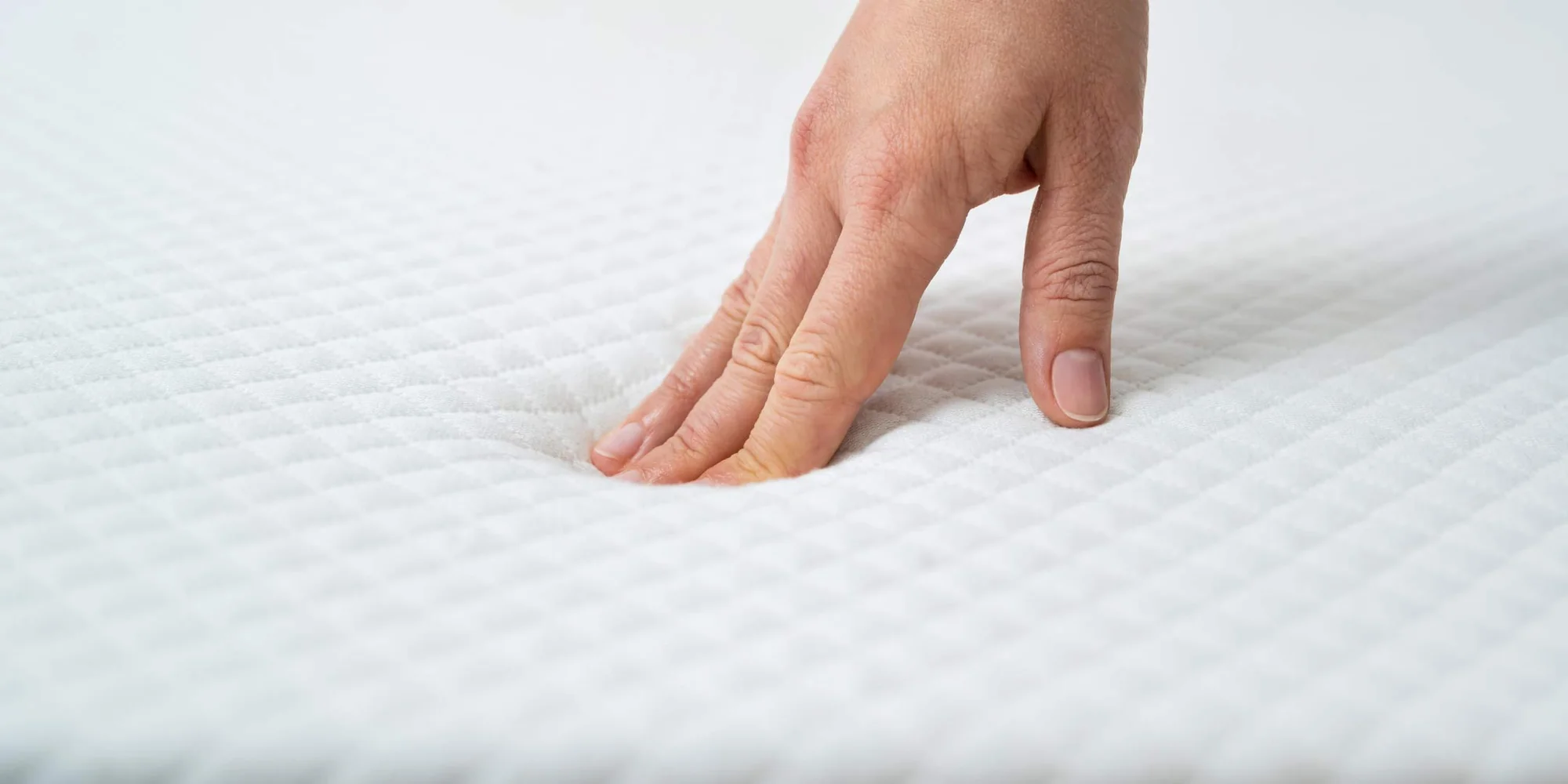
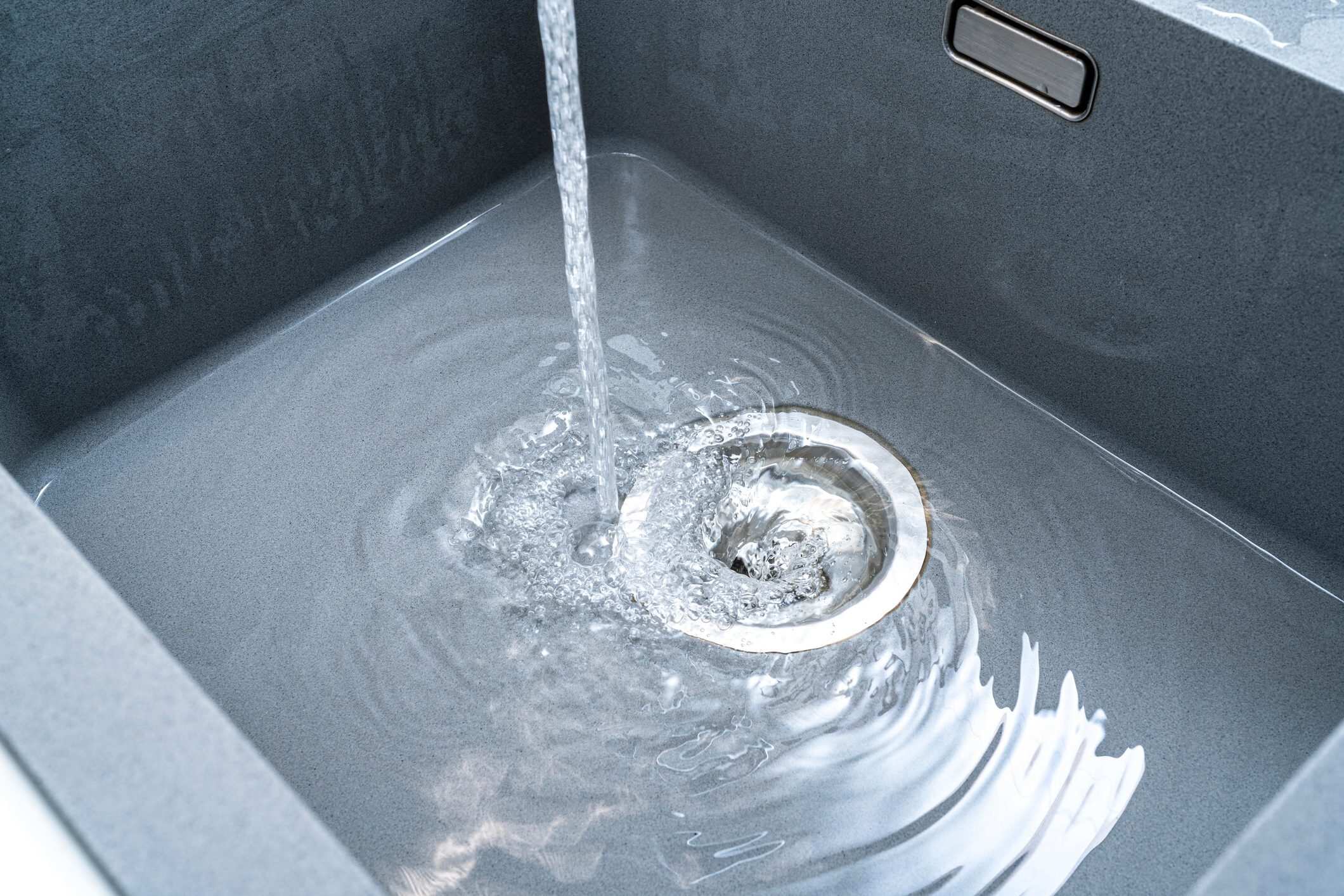
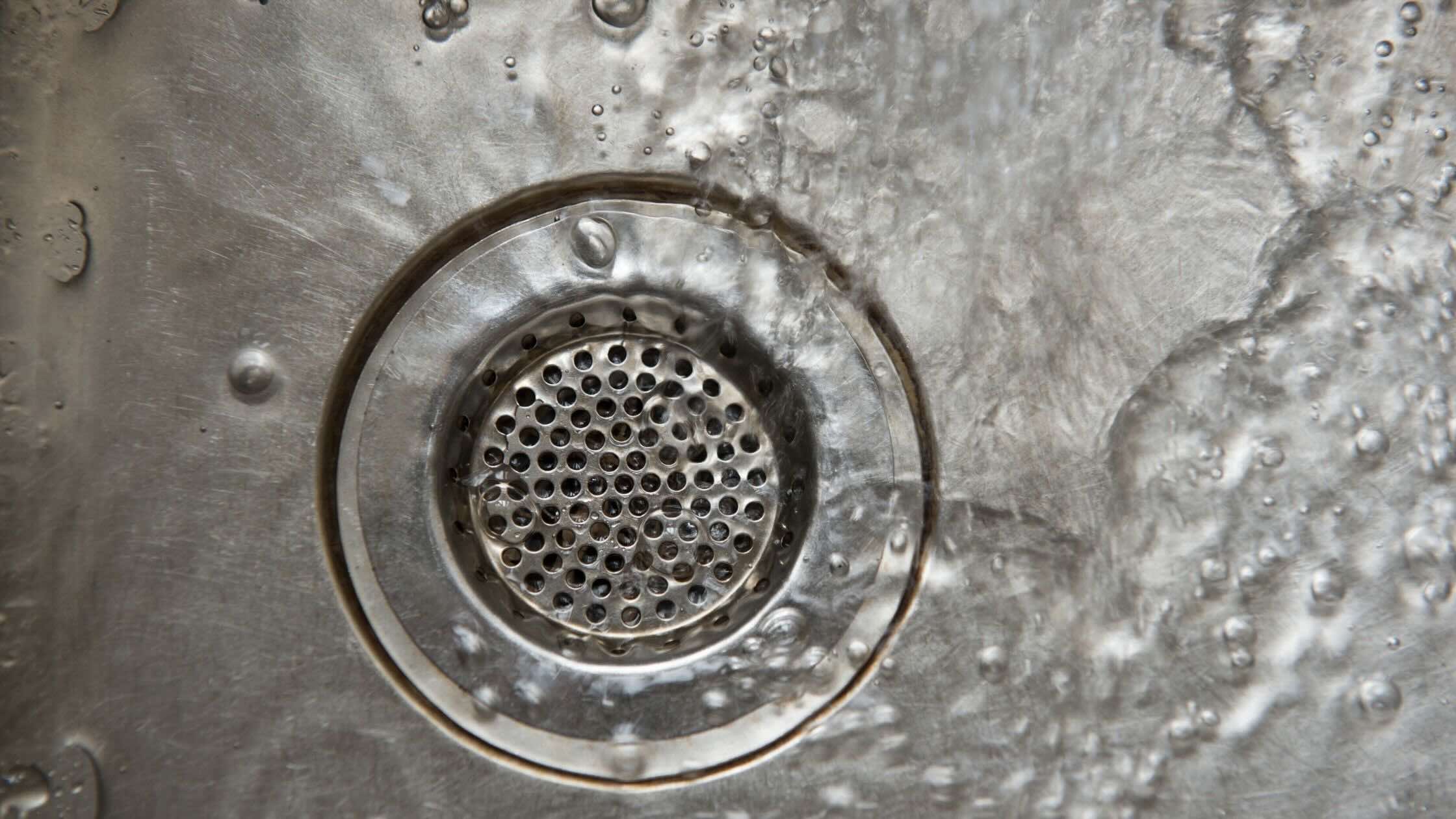
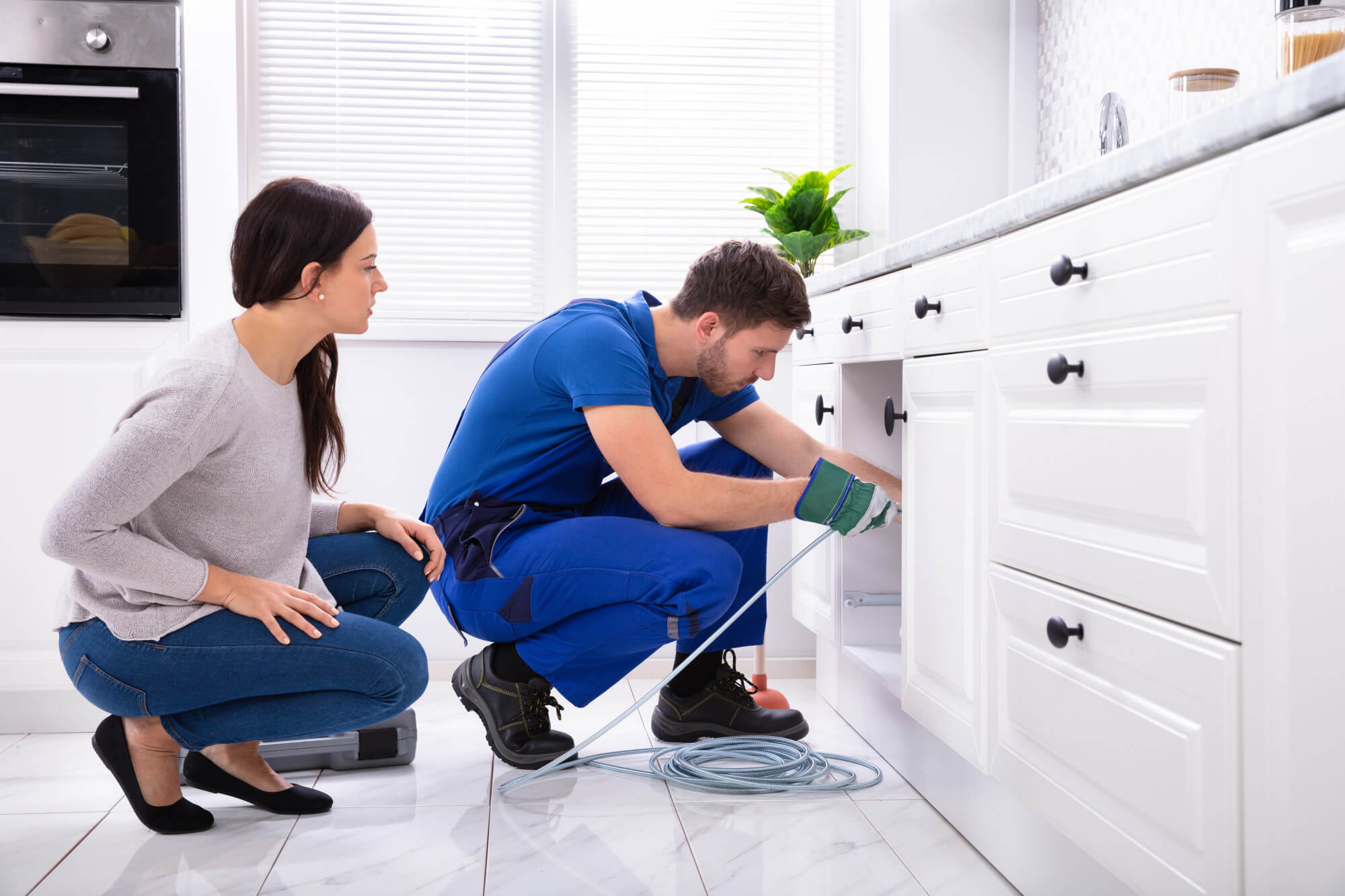
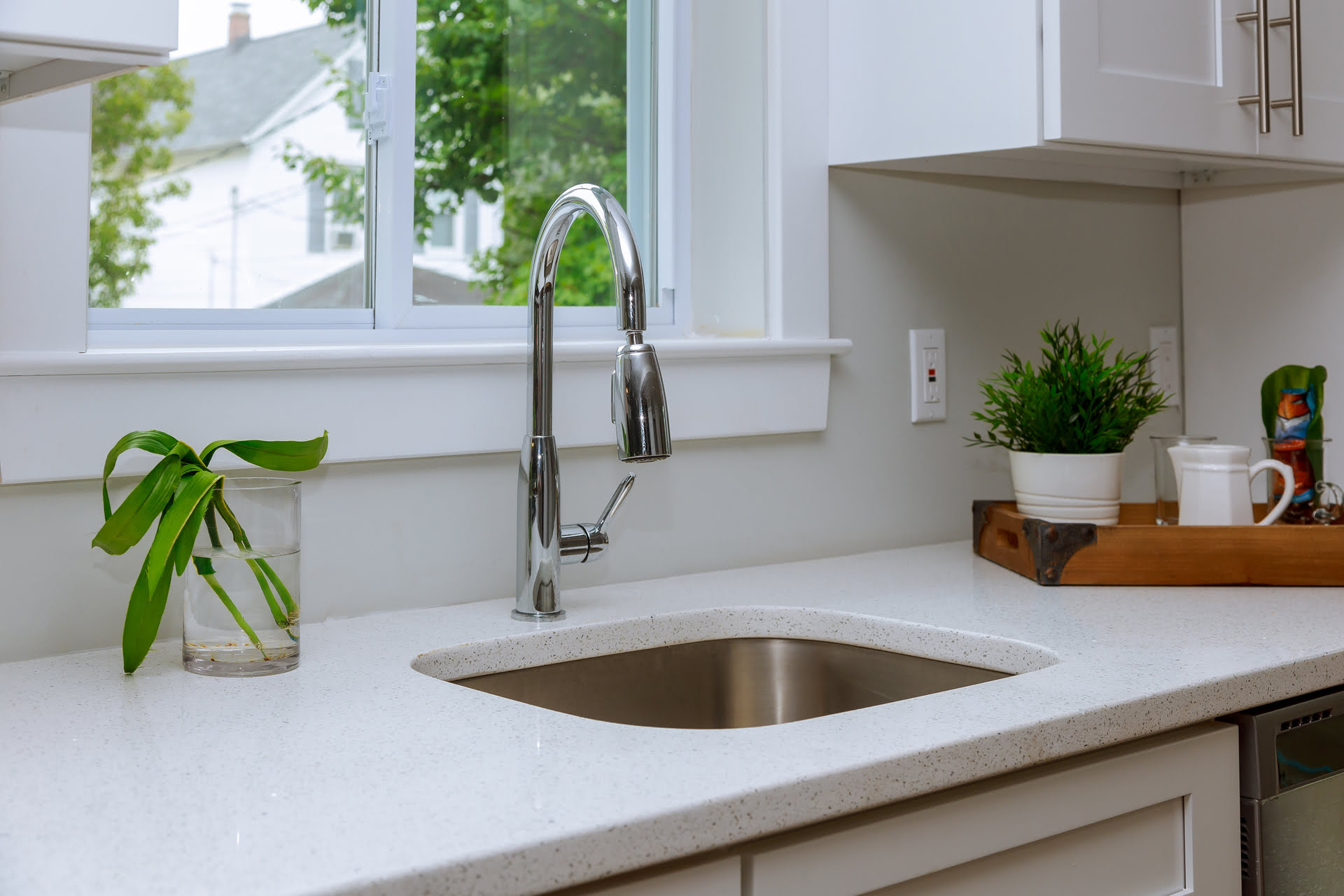
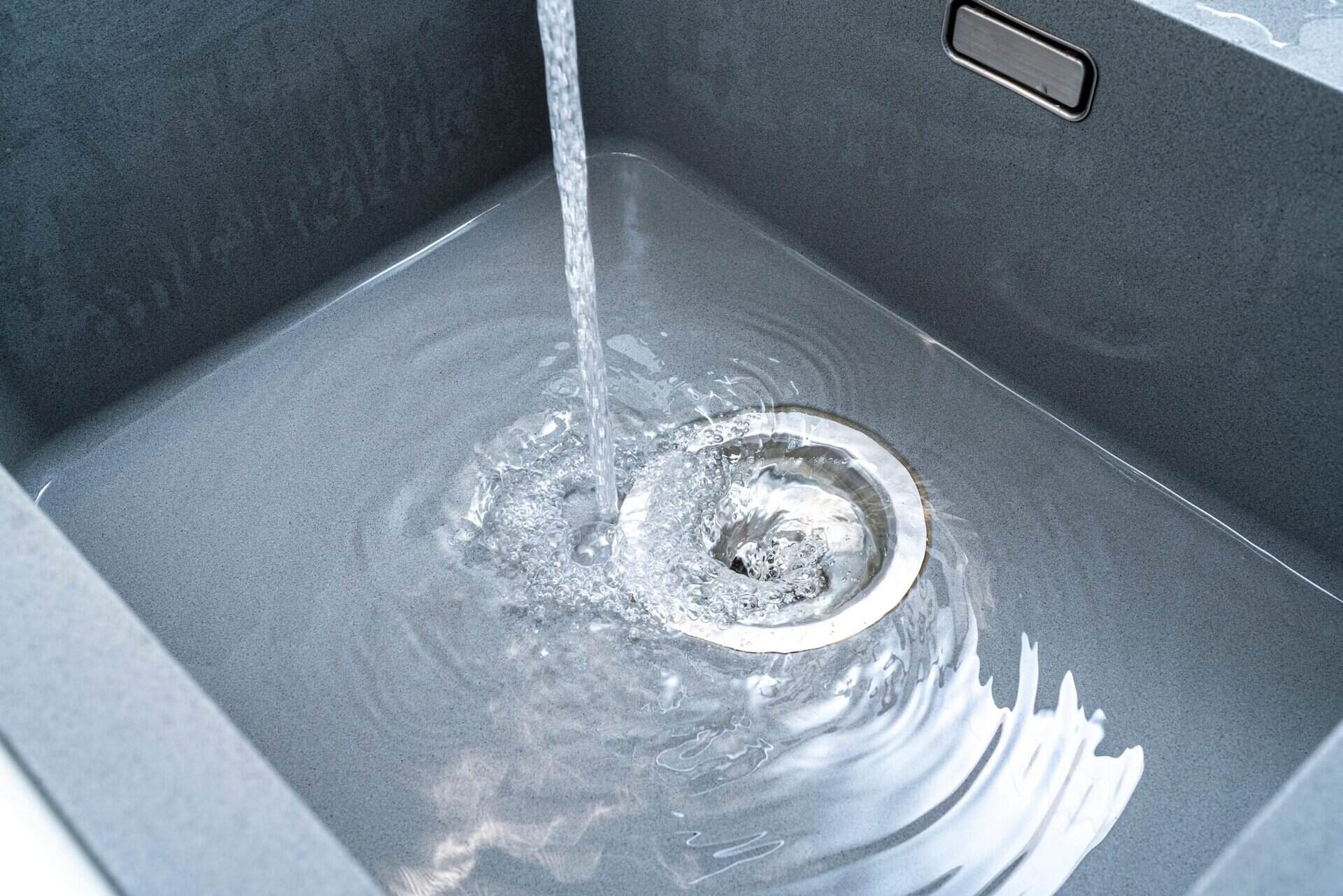
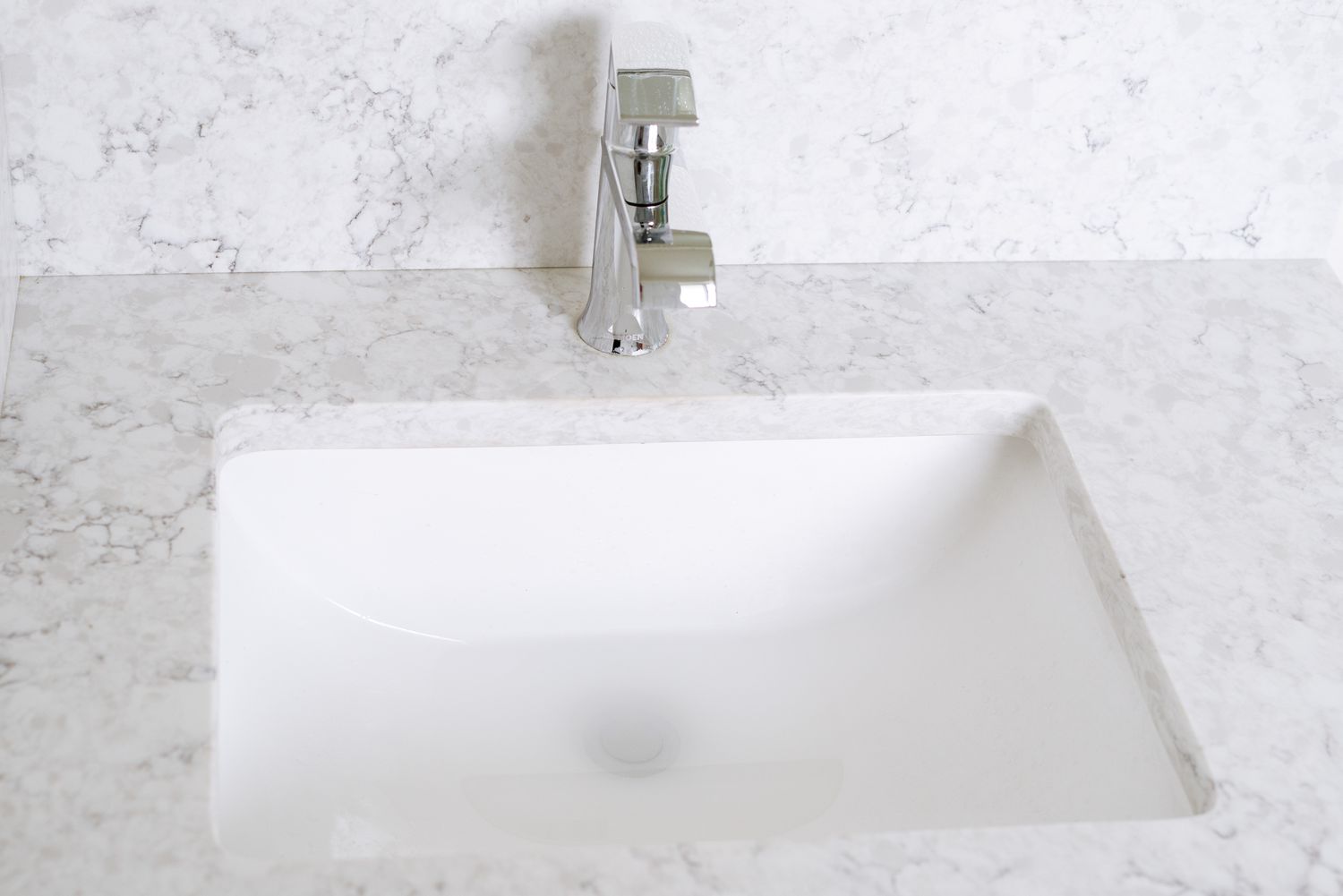
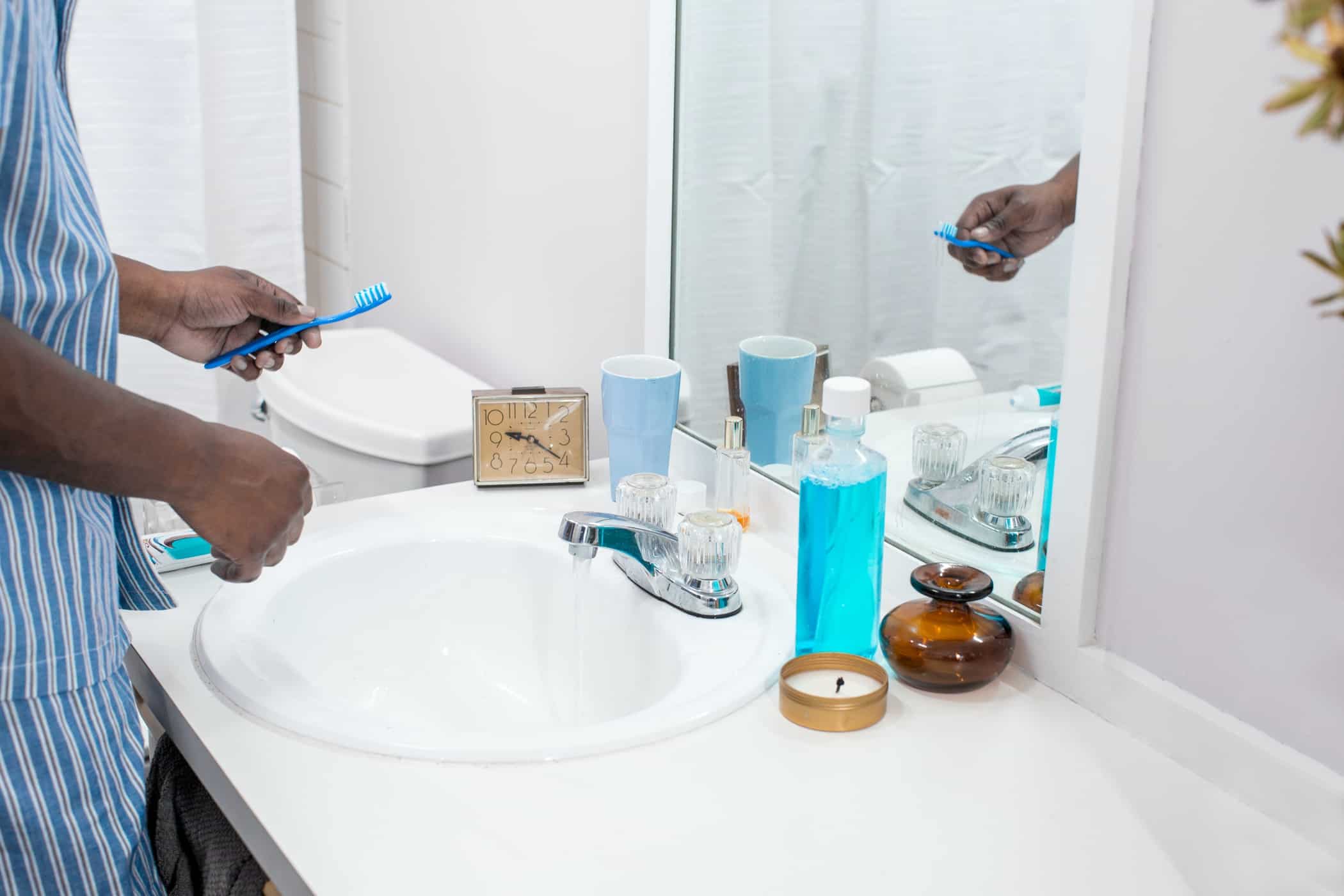
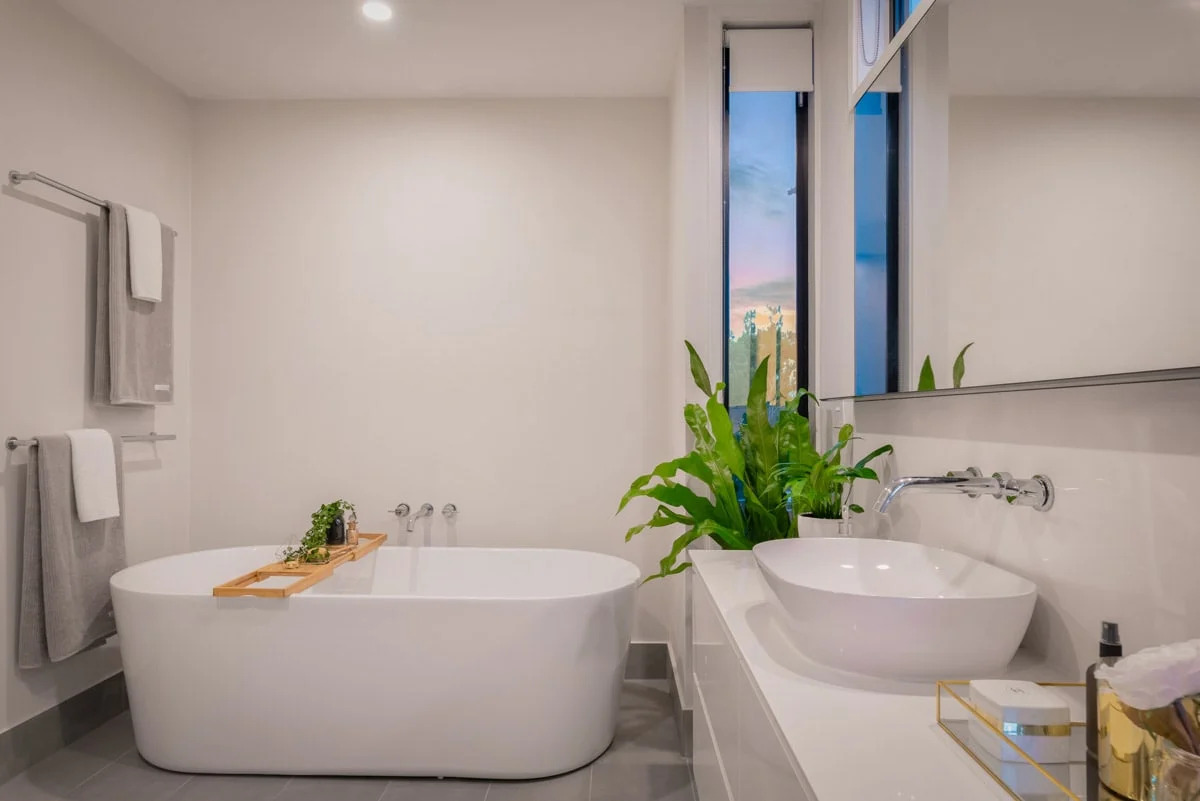
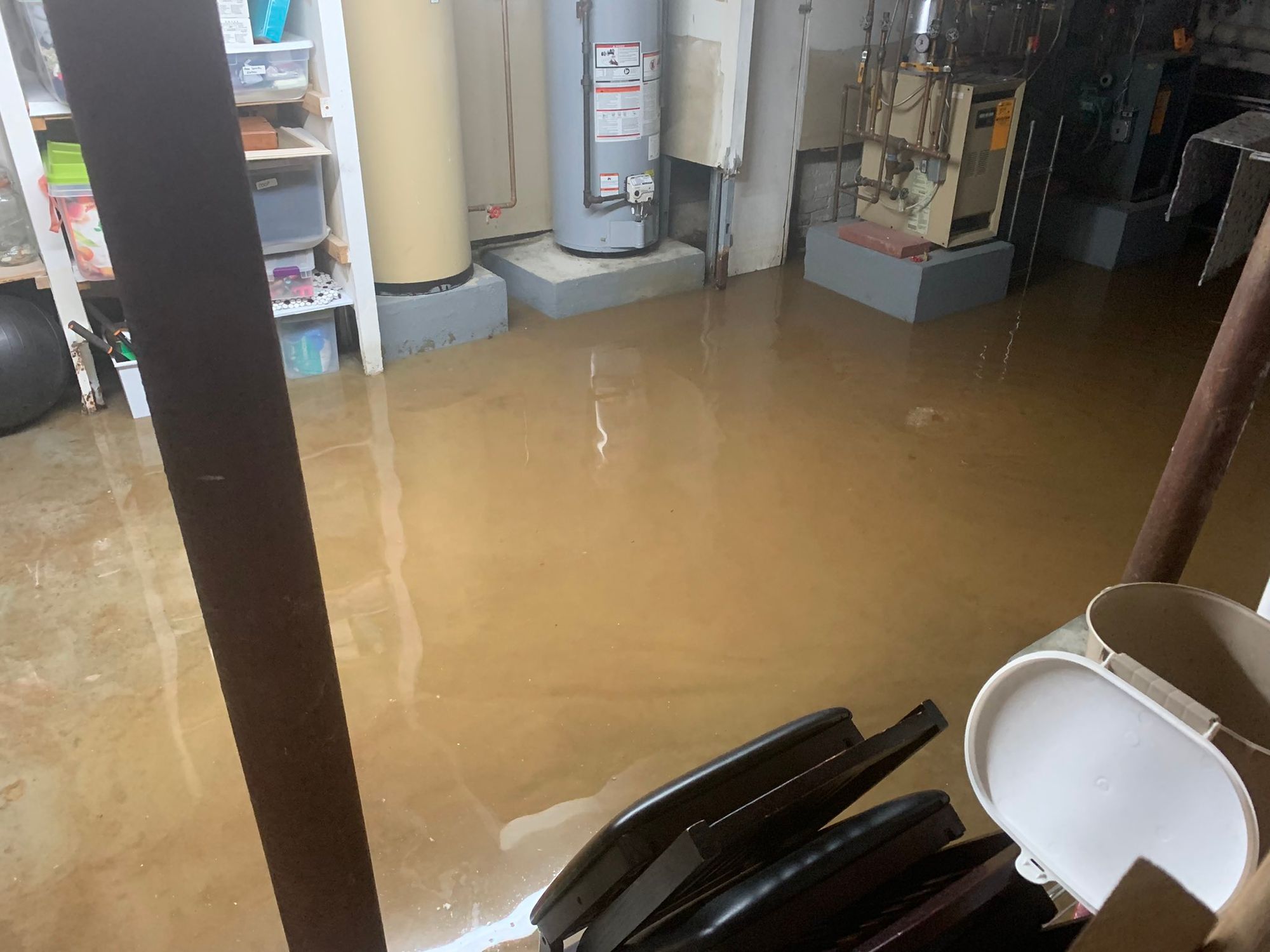

0 thoughts on “Why Does My Sink Gurgle”